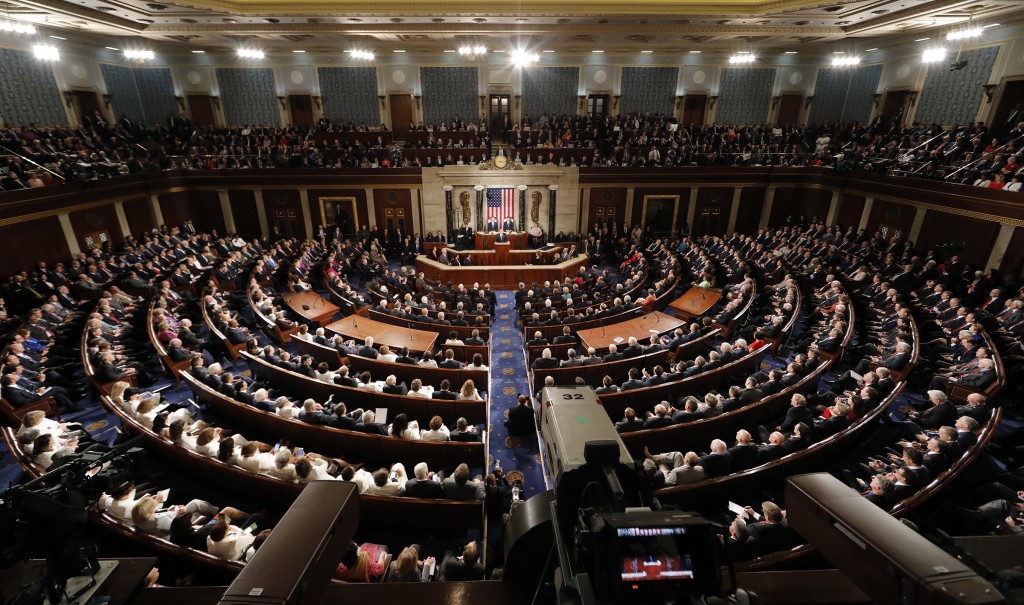 Are we barreling toward the impeachment of a president? Should we be?
Are we barreling toward the impeachment of a president? Should we be?
Impeachment is, as intended in our constitutional charter, the heavy artillery of checks and balances. It’s an unwieldy process by design: a simple majority vote in the House of Representatives starts the process, but then the Senate is required to hold a trial, with conviction (i.e. removal from office) requiring a two-thirds supermajority vote. To date, impeachment proceedings have been initiated against three presidents, two have been actually impeached, and none have been removed from office.
Article II, Section 4 of the Constitution not only defines the impeachment process, it also enumerates impeachable offenses…and in so doing throws up ambiguities that were (and are) probably necessary, but are maddening nonetheless.
The President, Vice President and all Civil Officers of the United States, shall be removed from Office on Impeachment for, and Conviction of, Treason, Bribery, or other high Crimes and Misdemeanors. (Article II, Section 4)
Bribery? Clear enough, I suppose. Treason? Well, it’s a word bandied about enough (Trump tends to apply it against his political enemies), but it has the virtue of being the one and only crime defined by the Constitution: giving aid and comfort to the enemy during wartime. The United States last declared war in 1941, so contemporary acts of treason are vanishingly unlikely.
That leaves what is perhaps the most familiar phrase in this charge, high crimes and misdemeanors. It does not mean what most of us think it means.
The phrase in its entirety is inherited from English common law, and dates from at least the 14th century. High crimes are, explicitly, political crimes, or at least crimes committed in office by political officers.
Misdemeanors are not, in this context, the codified classification of infractions that rank somewhere between traffic offenses and felonies. They are what is literally suggested by the word: mis-demeanor, or bad behavior. That’s clearly vague, but it also clearly suggests that not just criminality is grounds for impeachment.
Why? Suppose a president locked himself in his room, and refused to come out. Suppose a president left the country, and refused to come back. These aren’t crimes, but they’d obviously prevent a president from discharging his duties. So they’re cause for impeachment.
Likewise, a president that impedes congressional investigation can be impeached. As can a president who refuses to work with the congress until those investigations are halted. These are impeachable offenses if 51 percent of the House of Representatives says they are.
So should they? I don’t envy that decision. There are pros and cons—perhaps most tellingly, Donald Trump wants the House to impeach. He recalls the failed attempt at removing Bill Clinton, and Clinton’s absolute surge in popularity as the process dragged on.
Their situations aren’t exactly analogous. Clinton was a lame duck by then (he was impeached by the House in December of 1998, and acquitted by the Senate in February 1999). It’s true that his party picked up seats during the 1998 mid-terms, which can probably be at least partly attributed to impeachment-backlash…but on the other hand his party went on to lose the White House. Trump is probably right that impeachment will fire up his base—but will it win him reelection? That’s probably a tad too optimistic on his part.
Perhaps the strongest pro-impeachment argument involves what it would do for the congressional investigations of the presidency. Attempts to stonewall on the turnover of documents and the availability of witnesses will be non-starters. The courts have unanimously upheld the power of Congressional discovery during impeachment proceedings, and not even this SCOTUS would dare fiddle with that. Trump’s taxes would be an open book, and the Mueller Report would get unredacted. (One wonders if Trump has thought about this.)
Enticing as all that is, the overarching reason not to impeach is this: the Senate will acquit him. Unless and until offenses are uncovered that will turn even the MAGA-hats against Trump, the GOP-controlled Senate will not just vote the Articles down, they’ll cry aggrievement the whole time they’re doing it. Trump will play the victim, and in turn he’ll claim victory and declare himself absolved.
Since that would likely closely coincide with the 2020 elections, the outcome at the polls will hinge on who controls the messaging. The opposition might keep attention on the mis-demeanors that brought us to that juncture. Or Trump might gin up enough sympathy to pull off another electoral squeaker.
So who do you trust to prevail in that war of words? The party that consistently snatches defeat from the jaws of victory, or the con man who lives and dies by his brand image?
From a 30,000-foot view, impeachment sure looks like it is, or should be, an issue of national security, and indeed, national survival. Down here on the ground, though, it’s pure politics. These are politics that you don’t dare fuck up.
If/when Trump reaches a state of mental instability as to be an existential threat, then no doubt—no politics—he should be removed from office, and I think (I hope) even the Senate would be on board with that. But even the most impeachment-hungry among us has to recognize that’s not our present situation.
Impeachment? We’re just not there yet. Hold your nose, and let this play out a while longer.